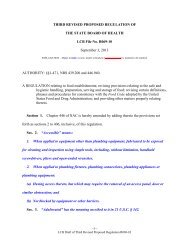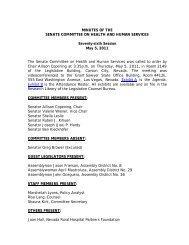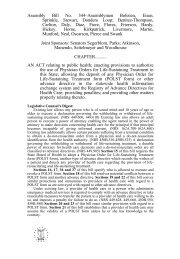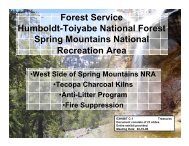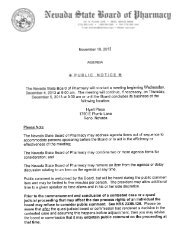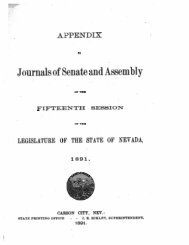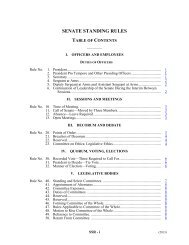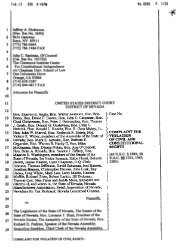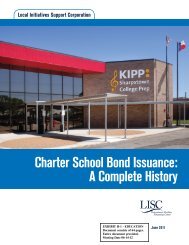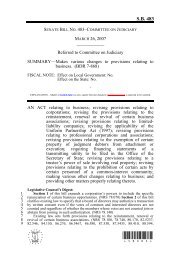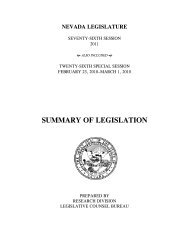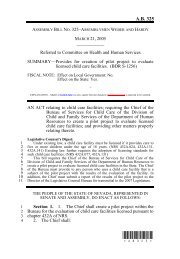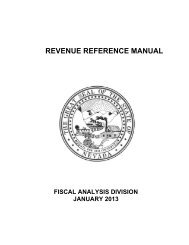Exhibit M-1
Exhibit M-1
Exhibit M-1
You also want an ePaper? Increase the reach of your titles
YUMPU automatically turns print PDFs into web optimized ePapers that Google loves.
3<br />
Source: David T. Conley, Educational Policy Improvement Center (EPIC), “What Does It Mean to Be College and Career<br />
Ready,” at Architecture for Implementing the Common Core Standards: Strategies, Partnerships, and Progress, slide 4<br />
(Louisville, KY, 2012), https://www.epiconline.org/files/pdf/20120228_SHEEO_ConleyHumphreys.pdf, (accessed March 8, 2012).<br />
www.ecs.org/per<br />
Identify skill subsets. Consider identifying subsets of skills that fall under the larger subjects of English language arts and<br />
math. For example, Virginia’s College and Career Ready English Performance Expectations specify 51 skills students need “to<br />
be academically prepared for success in entry-level, credit-bearing English courses in college or career training.” Reading,<br />
writing and communicating are articulated as three components, with subsets of skills identified for each of the three areas.<br />
Under writing, for instance, there are two “Documentation and Ethics” skills articulating that students should be able to use<br />
a standard method of documentation, and be able to define plagiarism and cite sources ethically. 8 Similarly, Virginia’s College<br />
and Career Ready Mathematics Performance Expectations set forth 36 mathematical functions and skills, grouped under<br />
“four interacting and overlapping strands that include content in the areas of algebra and functions, statistics, geometry,<br />
mathematical analysis, and trigonometry.” 9<br />
Ensure teachers “get” the expectations. Knowledge, skills and performance expectations for them should be thoroughly<br />
interwoven into secondary-level teacher preparation programs, and ongoing professional development and evaluation.<br />
Online tools such as diagnostic and formative assessments, classroom activities, assignments, etc. should be available to help<br />
teachers help students work towards achieving the standards, starting in grade 9.<br />
Ensure remediation (if necessary) prior to high school graduation. Texas, for example, has integrated college-ready<br />
standards into end-of-course assessments, and requires high school seniors who fall short of college readiness standards on<br />
an end-of-course exam to “enroll in a corresponding content-area college preparatory course[.]” 10 Legislation directs the<br />
commissioner of education and the commissioner of higher education to jointly develop essential knowledge and skills for<br />
college preparatory courses in English language arts, math, science and social studies, as well as end-of-course assessments<br />
for each college preparatory course. 11<br />
Include “behaviors.” College-ready knowledge and skills, and performance expectations for them, should express not just<br />
academic knowledge and skills, but also David Conley’s other “dimensions of college and career readiness” — such as<br />
“contextual skills and awareness”, “academic behaviors” and “key cognitive strategies” — that are so critical to college<br />
success. 12 For example, Colorado’s Postsecondary and Workforce Readiness Description includes “Learning and Behavior<br />
Skills” in nine areas. One of these areas, “Work Ethic,” includes seven skills, such as “Manage time effectively” and “Plan and<br />
prioritize goals.” 13



